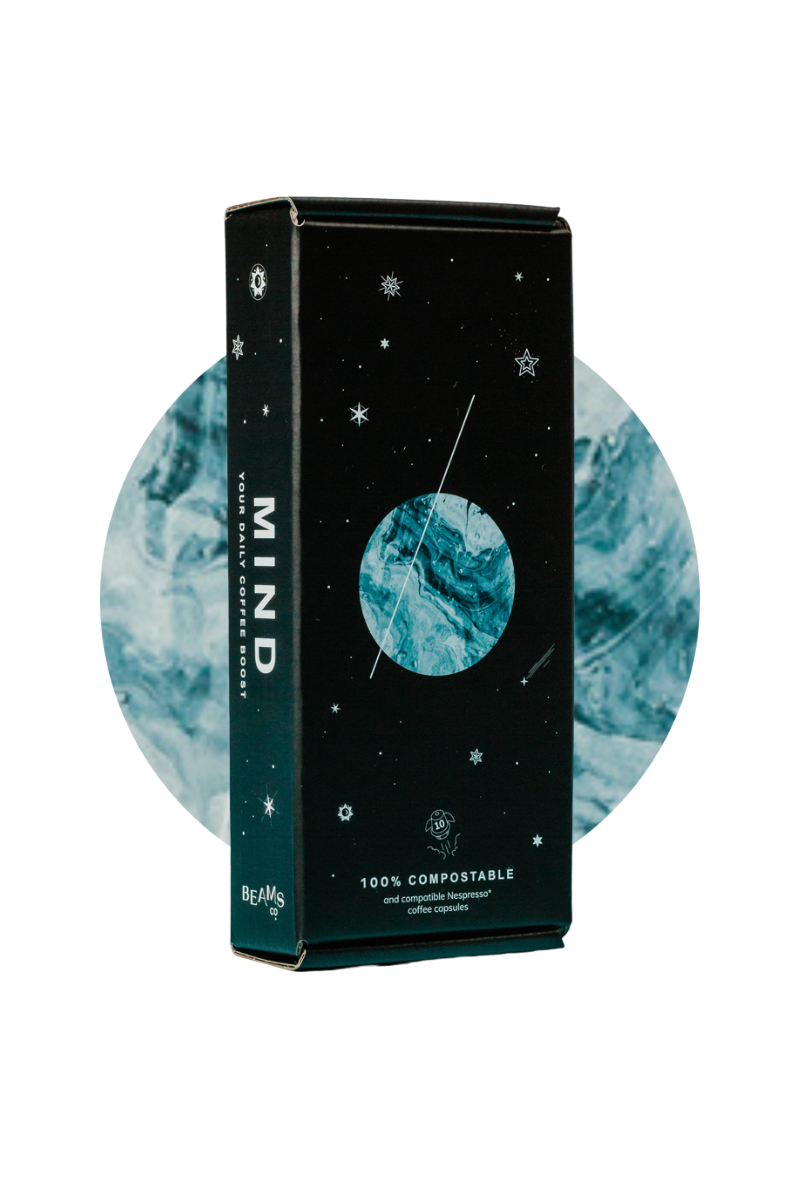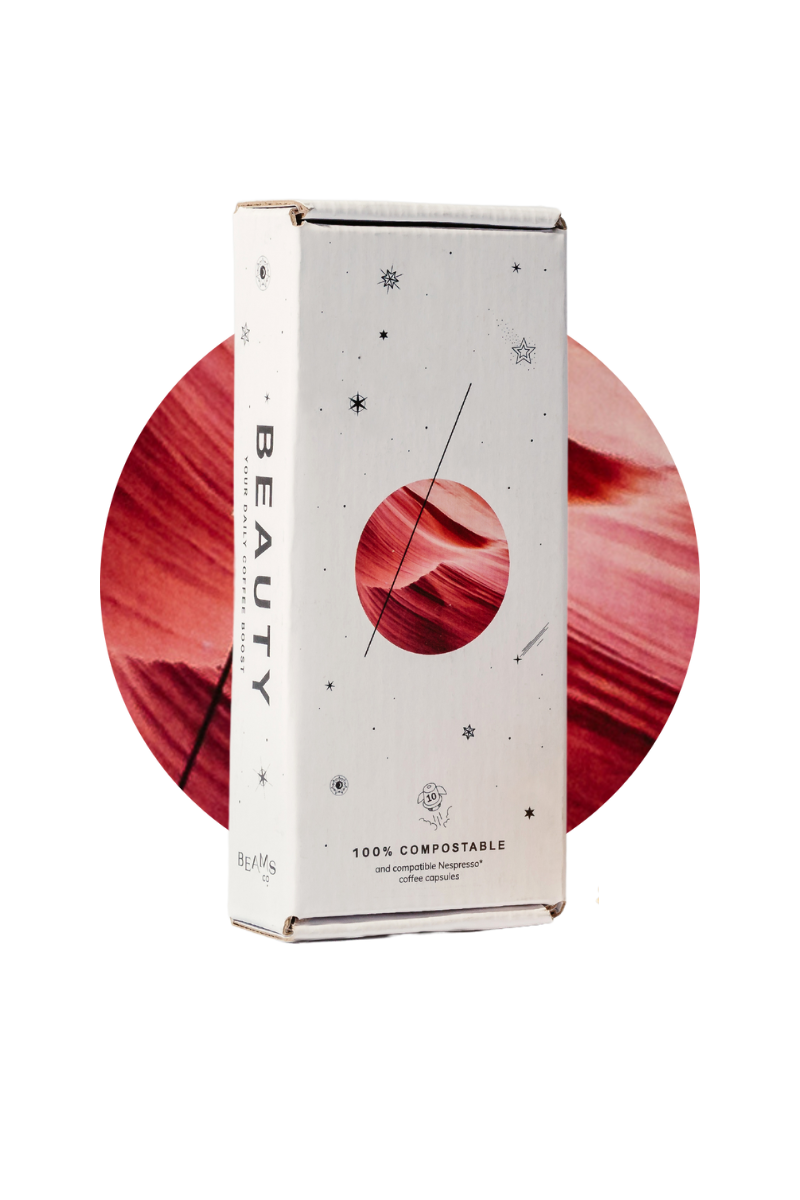But first, coffee. It’s a mantra many of us have lived by to help fuel our hectic lives, but at some point, it might be time for this daily ritual to evolve – and if you’re reading this, that moment could be now.
Beyond the joys of an aromatic, well-crafted cup or a superb slow drip, coffee has its positive proof points – when taken moderately, coffee has been connected to lower likelihood of heart disease, depression and type 2 diabetes according to Harvard School of Medical Health. But for some, it can be a roller coaster for the nervous system – it is a potent stimulant, after all – and a coffee alternative is called for. Or, you might have realised that coffee’s potent half life (about five hours after you’ve had your fix) means you can’t handle it in the PM or you’ll be wired all night – but you still crave the routine of a beverage and moment to yourself.
There are, of course, amazing alternatives to standard coffee out there that still help you fight fatigue if you’re relying on its ability to perk you up. We’re thinking natural caffeine alternatives that have ingredients with impact, and are a pleasure to spend time with.
Mushroom coffee
You’re a coffee lover for life, but want to upgrade. We get it. And that’s precisely why Beams Co founders Herman, Chamani and Sharon became mushroom coffee converts and created their own superfood coffee.
Our mushroom coffee is a powerhouse of medicinal mushrooms in powder form, such as Cordyceps, Lion’s Mane, Reishi and Tremella, grown organically in China and twice-tested by an independent lab to ensure food safety. Our mushroom coffee blends are designed to amplify energy, cognitive function, immunity and beauty, by supporting hair, skin and nail health. They’re custom-made with organic or Fair Trade coffee beans sourced from Colombia, Costa Rica and Sumatra, then finished by specialty roasters in Sydney before they make their way to you as biodegradable Nespresso pod alternatives.
And because it’s possible to be a coffee snob committed to a conscious lifestyle, we’re uncompromising about the flavour of our coffee – so while they’re supercharged with functional fungi, they don’t taste ‘shroomy.
Haldi doodh
If you’re been looking to swap out one of your daily coffees for something with less kick, you might have spotted an intriguing new arrival at your cafe called ‘golden milk’. Here’s the thing: it’s been known forever in India as haldi doodh – milk infused with turmeric, with cameo appearances by the likes of ginger cardamom, cinnamon or clove.
Vibrantly hued turmeric has long been used medicinally in India and in Ayurvedic practice, to treat ailments from inflammation to common colds, and to strengthen energy. Unsurprisingly, it’s a comforting cure-all that the Indian grandmother you wish you had would serve immediately to soothe your soul – and she would be right. The golden spice is now widely hailed as a superfood, and research confirms the antioxidant and anti-inflammatory effects of turmeric.
To make your own haldi doodh, bring one cup of your preferred milk to a simmer – oat, almond and soy all make for a delicious haldi doodh if you don’t care for dairy – with one teaspoon of turmeric powder. If you can find fresh turmeric root, even better as it will be more aromatic and earthy. Add a whole cardamom pod or two (or go wild with the aforementioned spices and a pinch of black pepper, said to aid the bioavailabilty of turmeric) and gently simmer for about five minutes to let the flavours mingle. Strain the haldi doodh before serving, with a little honey if that’s your thing.
Dandelion root coffee
There was a time not so long ago, especially if you frequented certain inner-city or seaside hotspots in Australia, when it became almost insufferable to hear fellow cafe-goers ordering their LSD: Latte Soy Dandy. But stay with us, because dandelion root, despite the rebranding, is a strong contender if you crave a coffee substitute that tastes like coffee. There’s something about the flavour profile of roasted dandelion root that has a whisper of coffee bean to it. And it comes in soluble granules like instant coffee, which might make you nostalgic about your earliest coffee-dabbling days.
If you’re sensitive to caffeine, this could be the soothing warm beverage that quietly slips into coffee’s place, at least in the afternoon – dandelion root has zero caffeine.
Matcha
There is something meditative about making matcha tea. The Hulk-green hue of the powder, made from ground tea leaves from bushes grown in the shade to boost their chlorophyll content, is mesmerising. The ceremony of whisking matcha with hot water into a smooth, foamy tea – using the right bamboo accoutrements, of course – is compelling. It’s an experience worth taking time out for. If this sounds like it could be just your thing, then the health benefits of matcha will seal the deal: matcha is high in antioxidants, specifically EGCG, which is connected to cancer-fighting effects according to a study published in the journal, Nutrients.
And if you’re looking for alternatives to coffee to stay awake, know that matcha has a decent amount of caffeine (between 18.9 and 44.4 mg/g compared to 10.0–12.0 mg caffeine/g of coffee beans), potentially making it your perfect coffee replacement.







